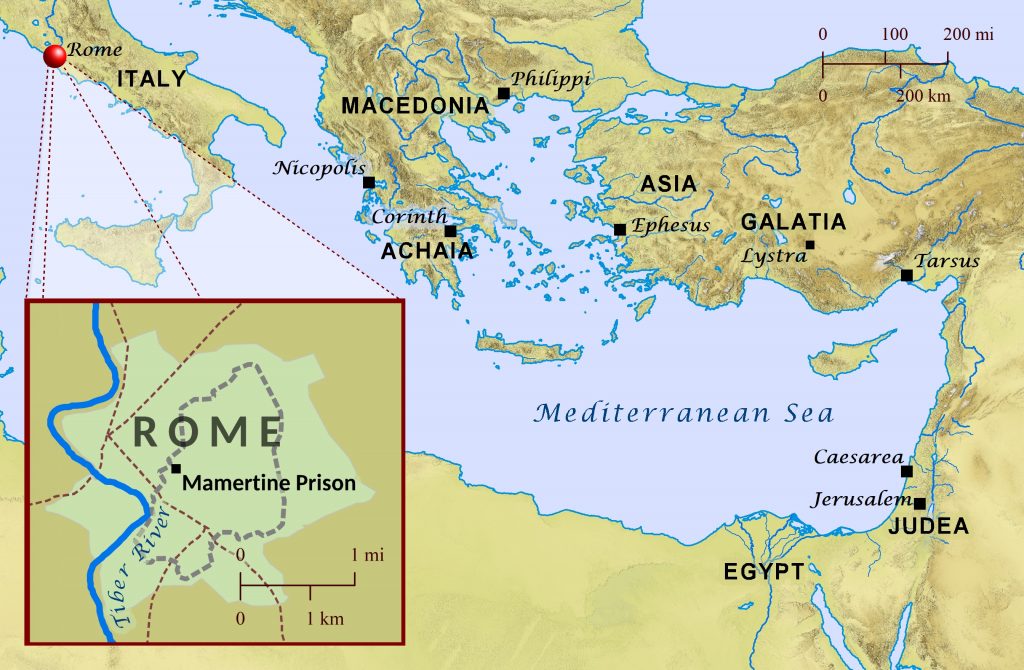Readers’ Version
Literal Version
23:12 The plan to kill Paul
12 The next day, some of the Jews gathered informally and pledged not to eat or drink until they’d killed Paul. 13 There were more than forty of them in this conspiracy, 14 and they approached the chief priests and elders and told them, “We’ve made an oath to taste nothing until we’ve killed Paul, otherwise we’ll bring a curse on ourselves. 15 So you guys assemble the council and report to the commander so that he’ll bring him down to you all as if you need more information about his actions, and then we’ll have an opportunity to kill before he gets here.
16 But a nephew of Paul had heard about this ambush and went in to the barracks to inform Paul. 17 Paul then called one of the Roman centurions and told him to take the young man to the commander because he had something to tell him. 18 So the centurion took him to the commander, explaining, “The prisoner Paul, called me and asked me to bring this young man to you because he has something to report to you.”
19 The commander took the young man by the hand and led him into his private office and asked, “What do you have to tell me?”
20 “The Jews have decided to ask you,” he said, “that tomorrow you bring Paul down to the council as if they wanted to question him further. 21 But don’t listen to them because over forty of their men will be lying in wait for him, and they’ve sworn not to eat or drink until they’ve killed him. In fact, they’re all set up already, just waiting for your consent.”
22 The commander told the young man not to tell anyone else about the ambush and dismissed him.
13 And were more than forty the ones in_this having_made the conspiracy, 14 who having_approached to_the chief_priests and the elders said:
With_a_curse we_cursed ourselves, to_taste of_nothing until of_which we_may_kill_off the Paulos.
15 Therefore now you_all with the council report to_the commander, so_that he_may_bring_ him _down to you_all, as going to_be_investigating more_exactly the things concerning him, and we are ready to_kill him before the time him to_near, which.
16 But the son of_the sister of_Paulos having_heard, the ambush having_arrived, and having_come_in into the barracks, he_reported it to_ the _Paulos.
17 And the Paulos having_called_to one of_the centurions, he_was_saying, be_bringing_up this the young_man to the commander, because/for he_is_having something to_report to_him.
18 Therefore indeed the one having_taken him, brought him to the commander, and he_is_saying:
The prisoner, Paulos, having_called_to me, asked to_lead this the young_man to you, having something to_tell to_you.
19 And the commander having_taken_hold of_the hand of_him, and having_withdrawn by himself, he_was_inquiring:
What is it that you_are_having to_report to_me?
20 And he_said, that The Youdaiōns decided which to_ask you, so_that tomorrow you_may_bring_down the Paulos into the council, as going to_be_inquiring something more_exactly concerning him.
21 Therefore you may_ not _be_persuaded by_them, because/for forty of them men more are_lying_in_wait him, who cursed themselves neither to_eat nor to_drink, until of_which they_may_kill him, and now they_are ready, waiting_for the promise from you.
22 Therefore indeed the commander sent_away the young_man having_commanded:
To_tell to_no_one that you_reported these things to me.

